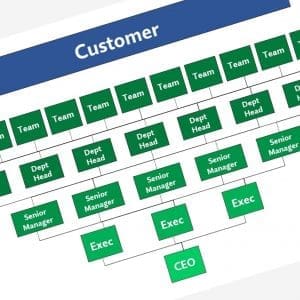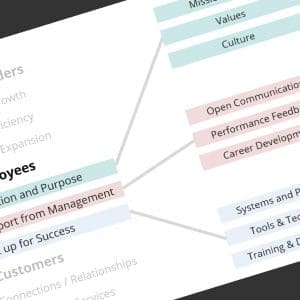I’m working this holiday week to get the majority of the written work completed for my 2013 Performance Reviews; I realize it’s something that folks do not enjoy doing, but I see it as an incredibly important effort. I like to think my organization and I are doing a fairly good job of communicating on a regular basis, but the structure and the formality of the annual Review process ensures that we are “on the same page” regarding the critical few things we should be focused on.

Hidden Benefit #1 – Well, not so hidden, but I think it’s important that the annual and mid-year conversations include some time spent on “what do you want to be when you grow up?” (a question I am still asking myself, by the way). I personally do not think career planning for the entire IT organization is my responsibility – that’s up to the individual. But I am always looking for opportunities for those who raise their hands – and am very energized and open to talking with anyone/everyone about what organizational and skills advancement is important for them. The key opportunity is to figure out how we could potentially move the needle on that stuff while, at the same time, improving things in the Information Technology area(s) of the Company.
But I started this post to make some observations on what I have historically seen in self-written Performance Reviews. I have consistent concerns regarding the SM in SMART (Specific, Measurable, Attainable, Relevant, Time-Bound). Simply put – most of the reviews I’ve read are a bit thin on specifics.
I’ve written about this over the years (examples here, here and here), so the intention and philosophy should be quite evident. I would expect annual Performance Objectives to include things that can be clearly and simply measured; of course, the mid-year and end-of-year performance conversations will be loaded with said metrics, clearly showing achievement of the Objectives.
Ah, but what if the systems and processes you work on do not have usable metrics / reports available? Hmmm – sounds like an opportunity! A good Objective for next year (or element of one) might be “Render system X measurable” [with some specific features / dimensions]. Key is that the metrics need to be relevant; “disk space utilization” might be interesting for an ERP installation, but “daily active users”, “transaction throughput”, or “interactive response time” would tell me more about who is getting value, how much work is being automated, and how effective is the use of the system.
Looking for some brainstorming help? Let me know in the comments section below … I’m a pretty good “ideas guy”, and enjoy brainstorming on metrics that are both relevant and attainable – I have a few tech skillz as well (at least I like to think so), so we can also skull about making them repeatable (think scripts, automation, feeds to a database … )
Hidden Benefit #2 – Performance Objectives are nice, but these metrics are an opportunity for us all to continue to get specific about the value being delivered by the systems we work on – and, a chance to get a little “clever hacking” in as well (all work and no play …).






This Post Has 0 Comments